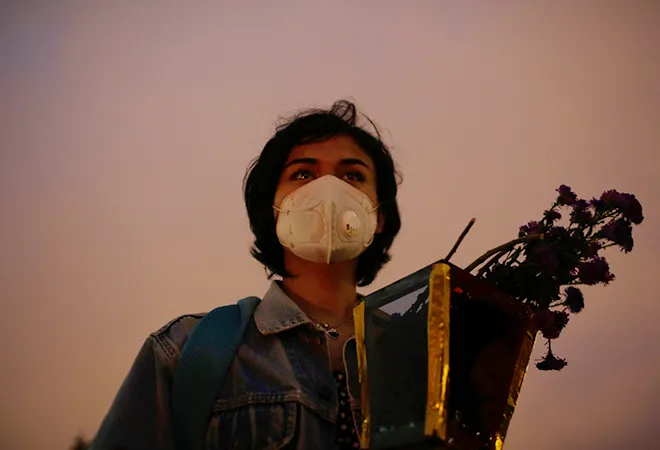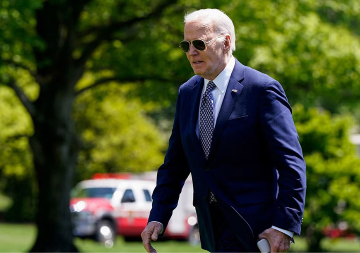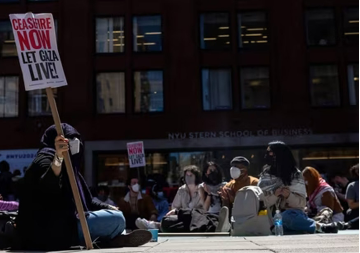
This article is part of the series — The Future of the Pandemic in 2021 and Beyond.
The pandemic has exacerbated structural problems that Latin America and the Caribbean were already facing before the health crisis, such as sluggish economic growth and the highest income inequality in the world. The estimates for 2020 published by the UN/ECLAC are devastating: The region will record, in 2020, the biggest GDP contraction in a century (-5,3%); millions will fall under poverty and extreme poverty and millions more will end the year unemployed. COVID-19 cases are currently spiking in the two largest countries in the region, and so the real impact of the pandemic on social wellbeing, economy, democracy, and access to rights is likely to worsen and is yet to be seen. 2021 will be an extremely challenging year on many fronts as much of the economic and social progress made during the commodity boom is reversed. In this context, the main implications of the pandemic on politics, economic and social development, democracy, and regional security will be highlighted.
2021 will be an extremely challenging year on many fronts as much of the economic and social progress made during the commodity boom is reversed.
First, it is important to note where the pandemic fits into the region’s general historical perspective. For most countries, the 19th century was marked by wars of independence and nation-building and the 20th century was about surviving revolutions, dictatorships, Cold War proxy wars; and for the Caribbean States, it was characterised by attaining independence. The 21st century was supposed to be the time for a long-awaited economic boom and insertion in the global economy, the moment for securing human rights for the most vulnerable peoples, and the period for establishing democracy as the only game in town. The region had been falling short of these expectations even before COVID-19 hit, and unfortunately, the pandemic has put the goals of democracy, human rights, development, and security farther away from reach.
In 2021, politics will have to adapt and function using a pandemic lens. For example, just as various electoral processes were organised and observed in 2020 during the pandemic, next year will be a busy electoral year highlighted by each country’s social distancing guidelines and restrictions. Seven general elections will be held, in addition to the midterm elections in a G20 Latin American country.
Politics will have to adapt and function using a pandemic lens.
It will also be a prelude year to two key presidential elections in South America (Brazil and Colombia), whose governments have openly opposed the Maduro dictatorship in Venezuela. Given that these States have been actively delegitimising the dictatorship and its cronies, the campaigning contexts could potentially become targets of disinformation attacks and destabilisation efforts from internal and external actors that for whatever reason, be it ideological sympathy or financial allegiance, support Maduro. And all of this will of course occur in a difficult pandemic setting.
As mentioned before, the reality before the pandemic was not ideal. Latin America and the Caribbean was and is the most unequal and the most violent region in the world, preconditions that provide a fertile ground for citizen dissatisfaction and disenchantment with the political class. Triggers for social unrest and political instability already existed due to these structural problems that have persisted for decades. It is important that the pandemic does not become an additional trigger for political and democratic instability.
The last problem the region needs in 2021 — a year that should be dedicated to intense economic and social relief — is lack of transparency and efficiency in government affairs.
Governments in the region can view the health crisis as an opportunity to prove critics wrong and demonstrate that effectiveness in the provision of social services, including the vaccine when it becomes available, is possible. Achieving this requires the highest standards of transparency and probity, and the exercise of responsible public administration. After years of dealing with transnational corruption schemes that undermined democratic institutions such as the Odebrecht scandal and PDVSA embezzlement and bribery schemes, the last problem the region needs in 2021 — a year that should be dedicated to intense economic and social relief — is lack of transparency and efficiency in government affairs.
Yet the values of transparency, accountability, and efficiency in the public sector only exist in democratic systems. A major challenge is that not all States in the region are democracies. Dictatorships strive to remain in power indefinitely, no matter if human rights are violated along the way. No matter if corruption and bribery are needed to maintain control. The Cuban and Venezuelan regimes do not play by the same rules as democracies do; in turn, they violate international standards on democracy and human rights. In fact, these regimes have been accused of crimes against humanity.
Dictatorships strive to remain in power indefinitely, no matter if human rights are violated along the way.
Dictatorships and a pandemic are not a good mix. The Cuban and the Venezuelan dictatorships can take advantage of the pandemic to strengthen their grip on power and increase repression internally. Firstly, because the international democratic community is busy dealing with COVID emergencies in their own territories, the international pressure on the dictators diminishes as a result. Secondly, dictatorships can worsen the violation of human rights dramatically by weaponising relief — and potentially the vaccine itself — as a political tool.
Whatever these 21st century Latin American dictatorships do or don’t do, the region will be impacted, especially for the case of Venezuelan refugees who have fled their country — they are dealing with the pandemic in addition to the worst humanitarian crisis and the worst refugee crisis the Western Hemisphere has ever seen. Today, there are 5.4 million Venezuelan refugees, the second biggest refugee crisis after Syria, but it is estimated that in 2021 it will become the biggest in the world. How the region, and the international community as a whole, act to support refugees and guarantee their right to health and to life during the pandemic will be a genuine test for democracy and liberal values.
Dedicating resources and time to fight the pandemic should not come at the sacrifice of fighting these criminal and illegal actors less.
In terms of regional and international security, it will be important that the pandemic in 2021 does not represent an opportunity cost in terms of not fighting organised crime and terrorist groups operating in the Hemisphere. Dedicating resources and time to fight the pandemic should not come at the sacrifice of fighting these criminal and illegal actors less. The de facto regional branch of Hezbollah, a terrorist organisation, is in Venezuela. Drug cartels and guerrilla FARC dissidents have also consolidated their presence given the complete lawlessness in that territory. Regional and international cooperation is essential to counter transnational organised crime organisations that see no borders and foster instability. The pandemic should not distract us from this enemy. But no one country can do it alone, not in the short or long term; more multilateralism that leverages financial resources and technical cooperation towards the common goal of peace and democratic security is a minimum required condition.
In sum, the pandemic has worsened the problems that Latin America and the Caribbean were already facing, and 2021 will surely be challenging in terms of political processes, economic and social development, democracy, and regional security. The region has always been vulnerable to external shocks, and 2021 and beyond will not be the exception. Even though the pandemic has made it harder to achieve the goals of peace, democracy, human rights, development, and security, there is consensus in almost all countries of the inter-American community that the response to these challenges is more democracy and more rights, not less. There will be no shortcuts, and relief and recovery will be painful. The road ahead should be underpinned by international and inter American norms that the States have agreed to abide by, as well as the long-awaited expectation of achieving a free and prosperous region.
The views expressed above belong to the author(s). ORF research and analyses now available on Telegram! Click here to access our curated content — blogs, longforms and interviews.




 PREV
PREV

